So long as DSA exists, free and fair elections are impossible

Sometimes, the line between reality and fiction becomes blurry, and one must ask some fundamental questions to ground oneself in the truth. In the strange times that we live in today, I would like to posit some fundamental questions to you, dear reader: Can democracy exist without freedom of expression? Can there be free and fair elections without freedom of the press? I believe that, for any soul who believes in the tenets of democracy, the answer will always be a resounding "no."
On March 29, at about 4am, a group of around 15 plainclothes officers of the Criminal Investigation Department picked up Prothom Alo correspondent Samsuzzaman Shams from his residence in Savar. Shams is now facing two legal charges under the Digital Security Act 2018, one of which also names Prothom Alo editor Matiur Rahman.
Unfortunately, this recent abuse of the DSA is only another grim statistic in Bangladesh's morbid trajectory of decline in media freedom. The Centre for Governance Studies' DSA tracker project paints a clear picture of how the law has been turned into a weapon of naked partisanship, primarily used to censor and suppress information that the incumbent government does not want the public to see, and has created a climate of self-censorship among journalists and reporters.
The project's principal investigator, Illinois State University's distinguished professor Prof Ali Riaz, recently stated that at least 355 journalists, 403 politicians and even 26 children were accused under the Digital Security Act. According to his study published in January titled, "What's Happening: Trends and Patterns of the Use of the Digital Security Act 2018 in Bangladesh," of all those accused under the DSA, 29.25 percent are politicians and 27.21 percent are journalists.
Of the plaintiffs, the study finds, 29 percent were people related to government service and 40 percent were directly involved with a political party, primarily Awami League.
The heavy-handed application of the law against journalists and opposition politicians is a black mark against the image of Bangladesh both at home and abroad. Not only is the law being used as a tool of censorship, but it also allows the violation of multiple international human rights.
The Office of the United Nations High Commissioner for Human Rights (OHCHR) has repeatedly brought the issue forth to Bangladesh. The response from the Bangladesh side has been agonisingly weak. The "OHCHR Technical Note to the Government of Bangladesh on Review of the Digital Security Act," issued to Bangladesh in June last year, stated that the "OHCHR is concerned that the blocking and removal powers granted to the authorities are extremely broad, given the vagueness and vast scope of possibly affected material and that the removal orders do not require the content to be unlawful or criminal, thus unduly restricting freedom of expression and access to information."
In the technical note, the UN Human Rights Office expressed concerns over the power of the DSA to detain those accused without a warrant and under harsh sentencing periods. Various amendments and annulments to and of various DSA clauses were suggested to the government, only to be promptly rejected by the law minister. It now appears that the government has no intention to let go of this weapon before the upcoming national election.
But how can there be any talk of free and fair elections if such draconian laws as the DSA continue to exist? Needless to say, for a democracy to thrive, press freedom is essential. To ensure that individuals in authority are held responsible to the public, journalists must have the liberty to probe and report on government acts, policies, and decisions. In order to form educated opinions about their government and actively engage in the democratic process, citizens need access to this data.
Without press freedom, governments may censor or restrict information, preventing the public from receiving important information about their leaders and the policies they are enacting. Corruption, power abuse, and a decline of the public's faith in government are all possible outcomes of a breakdown in accountability and transparency. The right to free speech and expression is also intrinsically tied to journalistic freedom. A free and open press is crucial to foster an atmosphere where differing viewpoints may be heard and debated.
A tell-tale sign of an authoritarian regime is the undermining of journalistic institutions. The most common play in the dictator's handbook is to paint the media as the enemy of the people. There can be no proper election if the government keeps using the DSA against journalists. A free and independent press plays a critical role in informing citizens about the electoral process, including the positions of candidates, the issues at stake, and particularly the conduct of the election itself.
Furthermore, a free press is needed to provide a platform for all candidates and parties to present their views and engage in public debate, helping to ensure a level playing field and preventing any one group from dominating the discussion.
Without a free press, citizens may be subject to biassed or incomplete information, and this can impact their ability to make informed choices at the ballot box. Bangladesh is already mired in accusations of electoral fraud, election time violence, and abusing law enforcement institutions to harass opposition candidates.
Whether or not Bangladesh can salvage its image as a democracy will entirely depend on how the next election is conducted. However, the government's stubborn refusal to get rid of its tools of censorship does not bode well for us in the slightest.
Zillur Rahman is the executive director of the Centre for Governance Studies (CGS) and a television talk show host. His Twitter handle is @zillur

 For all latest news, follow The Daily Star's Google News channel.
For all latest news, follow The Daily Star's Google News channel. 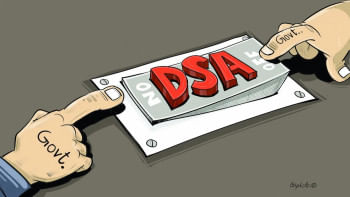
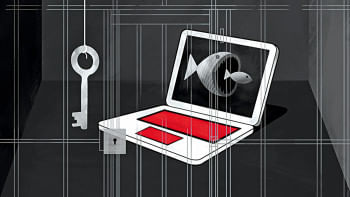


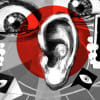
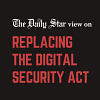
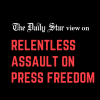
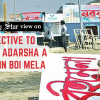


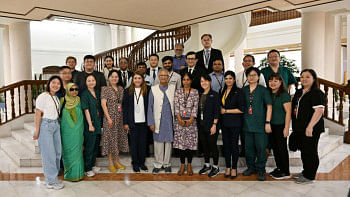
Comments